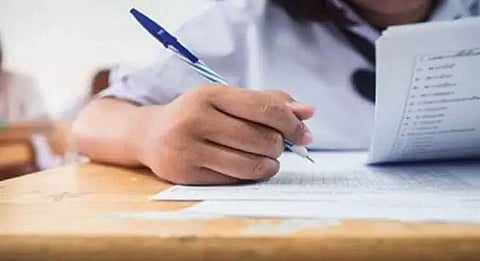
- Home
- Live Blog
- Breaking News
- Top Headlines
- Cities
- NE News
- Sentinel Media
- Sports
- Education
- Jobs

Ranjan K Baruah
(With direct inputs from UN/WHO publication and feedback may be sent to bkranjan@gmail.com)
Education is the key to bringing sustainable social change and the sector is facing challenges due to the pandemic. There is no doubt that education is a human right and the right to education is enshrined in article 26 of the Universal Declaration of Human Rights. The declaration calls for free and compulsory elementary education. The Convention on the Rights of the Child, adopted in 1989, goes further to stipulate that countries shall make higher education accessible to all. In India, the right to education is a fundamental right and every child has the right to free and compulsory education.
The international community recognized that education is essential for the success of all 17 Sustainable Development Goals (SDGs). Sustainable Development Goal 4, in particular, aims to "ensure inclusive and equitable quality education and promote lifelong learning opportunities for all" by 2030. The irony is that at present about 258 million children and adolescents around the world do not have the opportunity to enter or complete school; 617 million children and adolescents cannot read and do basic math; less than 40% of girls in sub-Saharan Africa complete lower secondary school and some four million children and youth refugees are out of school. Their right to education is being violated and it is unacceptable.
We have seen that the COVID-19 crisis brought education systems across the world to a halt. The loss of learning that many children are experiencing is morally unacceptable and more challenges are coming in front of us. Global data says that school closures have resulted in significant learning losses are now being corroborated by real data. For example, regional evidence from Brazil, Pakistan, rural India, South Africa, and Mexico, among others, show substantial losses in math and reading. Children from low-income households, children with disabilities, and girls were less likely to access remote learning than their peers.
On 3 December 2018, the United Nations General Assembly adopted with consensus a resolution proclaiming 24 January as International Day of Education, in celebration of the role of education for peace and development. The adoption of resolution 73/25 "International Day of Education", co-authored by Nigeria and 58 other Member States, demonstrated the unwavering political will to support transformative actions for inclusive, equitable and quality education for all. By doing so, the international community reiterated that education plays a key role in building sustainable and resilient societies, and contributes to the achievement of all other Sustainable Development Goals. UNESCO, as the specialized United Nations agency for education, facilitates the annual observance of the Day in close collaboration with main education actors.
This year's International Day of Education will be a platform to showcase the most important transformations that have to be nurtured to realize everyone's fundamental right to education and build a more sustainable, inclusive and peaceful future. It will generate debate around how to strengthen education as a public endeavour and common good, how to steer the digital transformation, support teachers, safeguard the planet and unlock the potential in every person to contribute to collective well-being and our shared home.
Secretary-General of the United Nations in his message said that "today, school closures continue to disrupt the lives of over 31 million students, exacerbating a global learning crisis. Unless we take action, the share of children leaving school in developing countries who are unable to read could increase from 53 to 70 per cent."
He also said that "our world is changing at a dizzying pace, with technological innovation, unprecedented changes in the world of work, the onset of the climate emergency, and a widespread loss of trust between people and institutions. Conventional education systems are struggling to deliver the knowledge, skills and values we need to create a greener, better and safer future for all. He called everyone to unite around education as a public good and a top political priority for the recovery and beyond.
There must be recovery after the pandemic ends and we must ensure quality education for all. Poverty shall increase and other challenges would be raised if we ignore quality education. Together we can make a difference by participating in activities that ensure quality education. There are many civil society organisations, non-governmental organisations and many others including corporate working for social change through education apart from Government agencies and departments. Let us all participate and enhance quality education for a sustainable future.